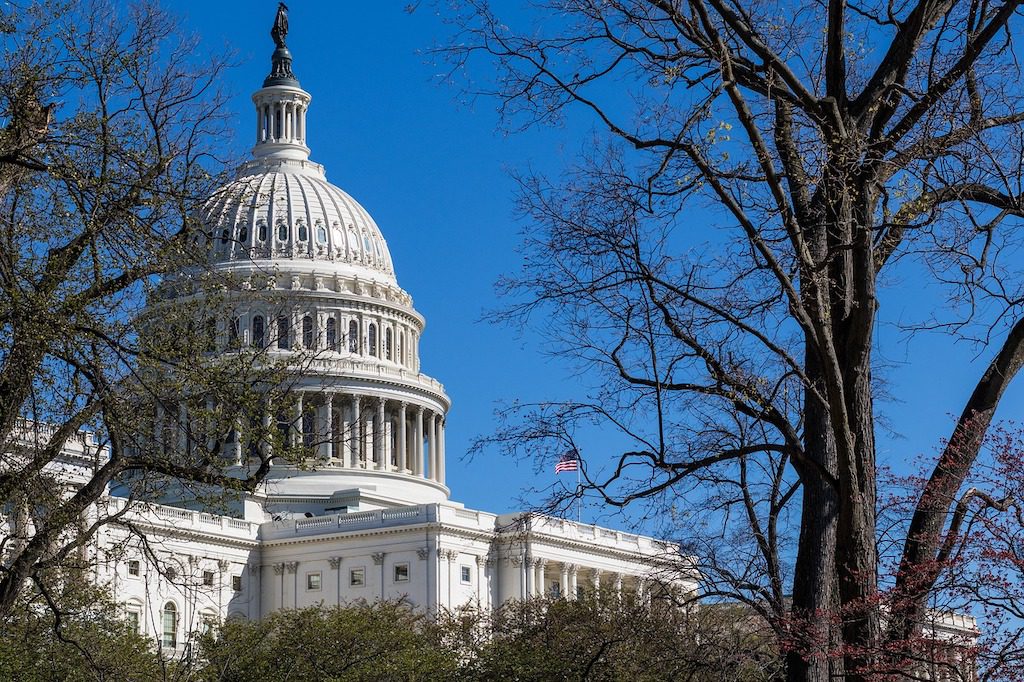Hotel Leaders Issue New Call for Federal Aid as Leisure Travel Lifeline Winds Down

Skift Take
While the next iteration of coronavirus relief from the U.S. Congress faces an uphill battle in Washington, hotel industry leaders rolled out a new wish list of key measures they say would be vital to ensure hoteliers stay afloat for another year.
But what will it take to get the federal help the U.S. hotel industry so desperately needs? Perhaps a structural change in how it deals with political leaders.
“The airline and auto industries are huge oligopolies and have been bailed out several times to save jobs,” said Remington Hotels CEO Sloan Dean. “Nothing has ever been done for hotels. Even if we are a bunch of small businesses, we are still a huge employer. Our fragmentation is why our lobbying efforts haven’t been as successful.”
U.S. President Donald Trump signed four executive orders earlier this month aimed at providing coronavirus relief and to execute a workaround to stalled talks on Capitol Hill. But the measures, which include $400 in added federal unemployment benefits to individuals and a payroll tax break, don’t go far enough for the struggling hotel industry, argued American Hotel & Lodging Association President Chip Rogers last weekend in a prepared statement.
The AHLA and other travel industry groups still want to see an extension of the Paycheck Protection Program small business loan initiative born from the $2 trillion relief measure passed in March. The original PPP initiative expired at the end of June and still has about $130 billion in untapped funding.
The trade groups also want Congress to pass business liability protections against coronavirus exposure claims and make adjustments to the Main Street Lending Program to give hoteliers access to further liquidity.
The Main Street Lending initiative offers loans to small and medium-sized businesses, but the hotel industry argues its debt caps essentially shut out hoteliers, who typically carry higher amounts of debt in the form of mortgages on their real estate.
“What we need is some type of credit facility and addressing of the debt in hotels by the federal government,” Dean said. “There is a wave of foreclosures coming. [Congress] gave this huge credit facility to airlines and didn’t do anything for hotels.”
While Dean and other industry leaders would also like to see measures like a tax incentive to get Americans to travel, they recognize the next few months are still about survival rather than mitigation and recovery from the cratered demand in travel.
“I think what the industry needs from the government is a bridge to a time when people are going to feel safe traveling again," said Alex Tisch, executive vice president of commercial and business development at Loews Hotels. "[That] is likely going to be a combination of increased understanding of therapeutic medicine for Covid and a vaccine that’s been tested where the biggest and best companies and groups in America are going to feel comfortable sending their delegates and team members to hotels for meetings and conventions."
That financial bridge should be more targeted at companies that are truly struggling compared to previous rounds of federal coronavirus relief, the hotel industry thinking goes.
“I think the real immediate legislation needs to make sure the money gets in the hands of the people who need it,” Tisch said. “I think that, ultimately, the question the industry or government needs to answer is, if you’re keeping everyone afloat, you’re disproportionately spending money on those that took riskier financial bets in the past. Granted, nobody predicted this predicament, but is that the right use of the money in the end?”
Countdown to a Second Downturn?
Stimulus talks continue while the industry faces its next problem: Summer is winding down.
Summer leisure travel has fueled a vast majority of the U.S. hotel industry's ongoing recovery. The hotel industry now has to forge its own survival strategy while it waits on Washington.
The end of summer typically means fewer leisure travelers, as more families are tied to home while school-aged children return to the classroom. The hotel industry continues to perform well — in normal travel years — by focusing more on corporate transient and group business travelers in the fall.
But the year of coronavirus means the typical fall rush of business travel is almost certain to stay away until a vaccine is approved and in widespread distribution.
“You have to extend leisure travel,” Dean said. “I think you’ve got to find a way to extend weekend bookings to include Thursdays and extend the season into September, October, November, and December.”
That may not be as impossible as it sounds.
Leisure travel doesn’t dissipate over the fall as some analysts would have you think, Marriott executives said during an earnings call earlier this week. Leisure travel accounted for 36 percent of total Marriott bookings during the summer of 2019 and only dipped to 32 percent in September and October, Marriott CEO Arne Sorenson said. Numbers swelled in November and December due to holiday travel.
Flexible work from home policies and school districts deciding to remote teach during the fall semester could give families the opportunity to still travel beyond the summer.
If the industry can find a way to buoy through the next four months, it may finally have recovery — and the return of vital business travel clientele — within its grasp.
“I don’t think we start to see some level of normalcy until the first quarter [of 2021] or at the announcement of a vaccine,” Dean said. “Then, I think it’s off to the races at the end of the second quarter.”




